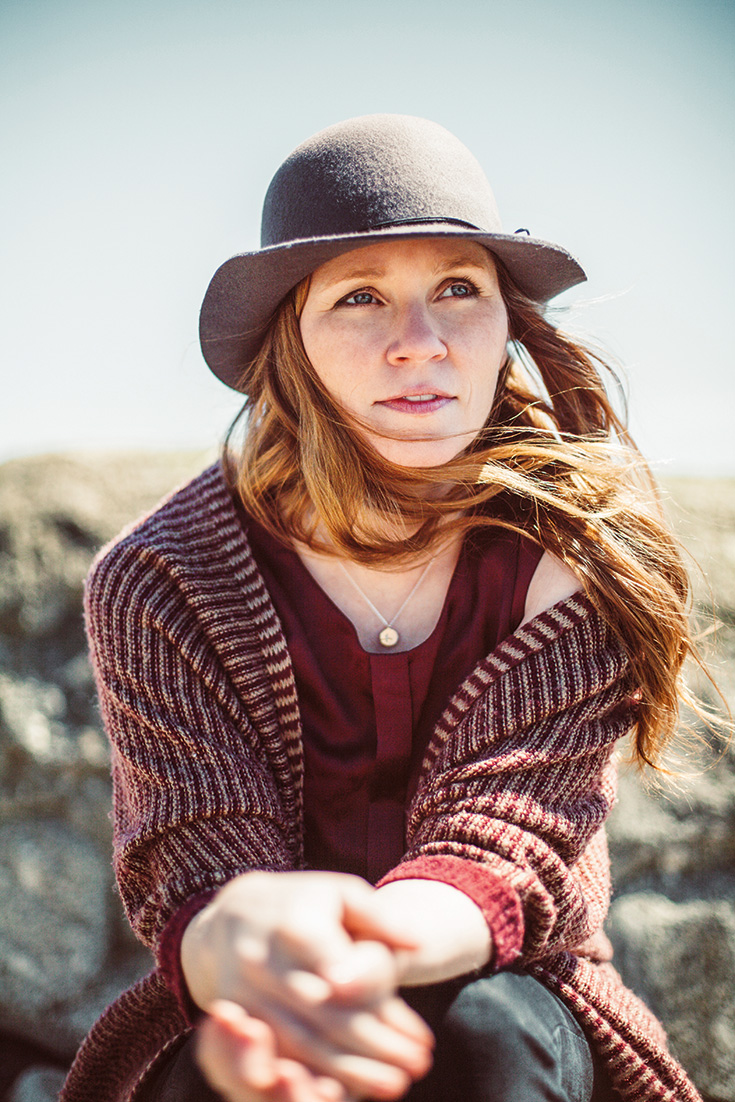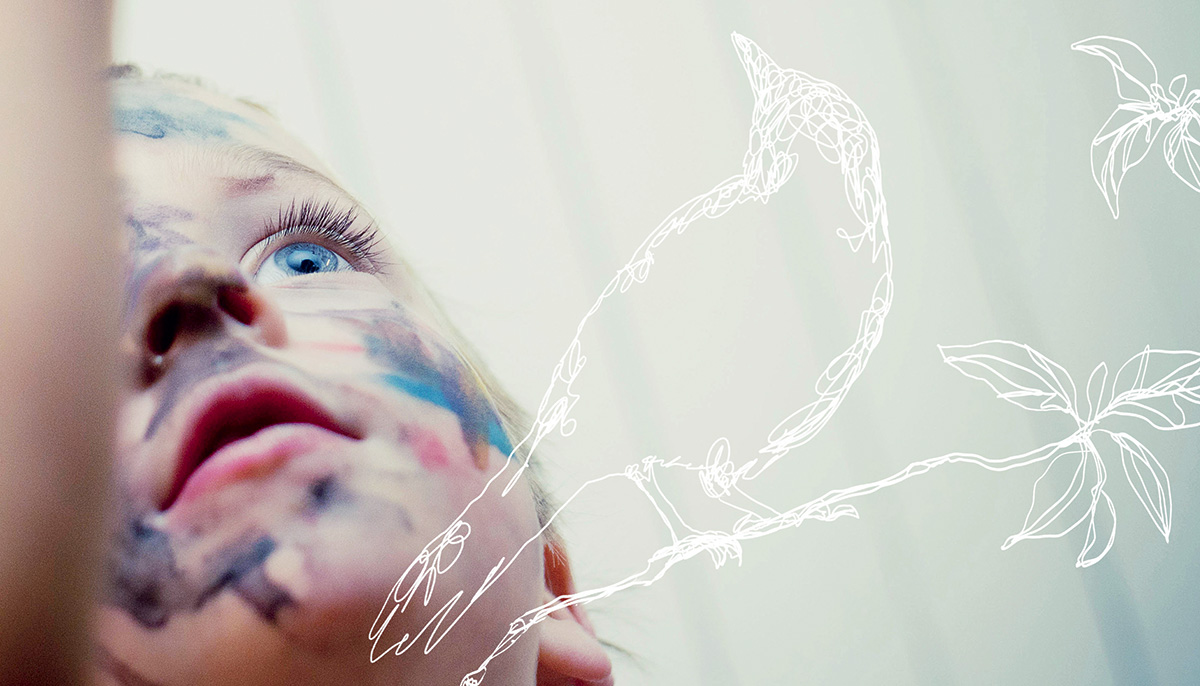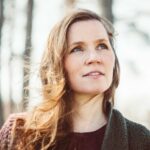I had seen dead mice, dead raccoons, swallows and starlings bonked against glass windows and fallen in the garden. I saw the decapitated head of a cow, once. A prop for a horror movie. One of the guys on set said, Pssst. Heh heh. Check this out, grasping the cow’s head by the scruff between its ears and lifting it up, still dripping, from a five-gallon bucket.
Having gone west through my twenties, I had been informed of faraway deaths by phone. Grandma Joe had died; Grampa Paterson had died; Grampa Joe had died. My Grandma Paterson was the last to go. My mother dropped her phone on the hospital bed without hanging up.
Mom? Mom, I’d heard her say. Mom, I love you…I’m here…get the doctor… Mom…
I knew death was Out There, but I didn’t know it. Death was never personal until a team of emergency room doctors ran down a hall pushing me on a gurney.
The wheels wobbled violently and people in blue scrubs yelled ahead for crash carts. I saw double doors kicked open and dozens of masked people scrubbing in and shouting back and forth in a language that was English but that meant nothing to me. I was six months pregnant with identical twin boys. The resident had listened to my belly and declared one heartbeat gone, the other very faint. That’s when everyone started running.
Skipping ahead a little, because this isn’t about the six weeks in between their birth and his death. It’s about the end. All the ends.
Mice, raccoons, swallows, and starlings. My infant son was the first death I’d ever witnessed and the first dead human body I’d ever seen. We held him all night through spells of breathing and spells of impossible stillness. DO NOT RESUSCITATE said the paper I’d signed, which had felt both like an act of unforgivable abandonment and unconditional love.
You loved him too much to make him stay at any cost, says the rational voice inside my head. Even if he could have stayed, which he couldn’t. Letting him go wasn’t playing god. Making him stay would have been.
But you’re not supposed to do nothing when your kid can’t breathe. How could you?
That other voice throws drive-by grenades and trails off pathetically, viciously. It is a vice around my windpipe. I can’t help it. I am his mother. Was his mother? Everything went wrong.
There’s nothing as spent, as compelling, and as disconcerting as a dead body. Our human container—this soft machine tight-packed with indistinguishable goo and plumbing and gristle and currents of blood and electricity, garbage and stardust and favorite burritos—is left empty, a slack sort of emptiness that wants to be looked at.
The nurse left the room, off to quietly initiate the protocol of clearing up. I cupped his head in one hand and his tiny bare rump in another—he was so small he didn’t yet have cheeks to squeeze—and I leaned forward, letting gravity gently tilt the three pounds that had been him into the cradle of my legs.
The worst-case scenario, existentially speaking, is rich and humble ground.
He was already cold, not blue or ashen but the color of nothingness, drained of life. Misshapen by the ordeal of his birth as well as the prison break of his death, by heart surgery and brain surgery and hydrocephalus, lack of oxygen, morphine drip, shit luck.
His identical brother made it by the skin of his teeth. As I write this, twelve years later, Ben stacks wood wearing my boots. He scrambles omelets, plays football and the saxophone, and will still hold my hand.
Liam, poor love. Both of them born three months too soon, he bore the brunt of it. He was six weeks old the day he died. I looked at his body and felt enraged—at his suffering, at my malfunctioning body—but also touched by a very kind, very old sorcery I couldn’t define. It was the most horrible day of my life. It was the most illuminating day of my life.
Death gives you a whole lot more to think about when it’s enmeshed with love.
Why are we here, then? What’s the point?
Welcome to the domain of every philosopher and maudlin drunk. We will die. We are the only animals who know it beyond the base instinct to run, hide, or pounce. A lonely marvel, we are—each of us containing eighty-six billion neurons of over-swollen cerebrum, thumbs, missing links that give us mechanical aptitude, imagination, language, ego, and the knowledge that we will suffer heart-wrenching separation again and again during our limited time alive. Blessed and cursed with human sentience, we are compelled to explain and self-soothe. We are the only ones who language despair, indulgence, self-pity, and entitlement. We seek out every lover, cheeseburger, and exfoliant knowing we only have so much time—who knows how much? To catalogue what we know for certain:
We don’t know why we are here.
We know we will die.
We don’t know when.
We know we will suffer when the people we love die.
We don’t know when.
We don’t know what happens when we die.
We want less worry and hurt. We want the world—our existence—to be explained, resolved, tied up neatly. We want the “we” of our after-lives to look back, satisfied: See, now? It was supposed to be this way. There was nothing to be afraid of. It all makes sense.
My dead infant son in my lap, I knew for certain: nothing makes sense, but not Nothing Makes Sense! with an exclamation mark. It was a quiet, soft confirmation. Nothing makes sense. Nothing doesn’t make sense. Nothing is or is not supposed to be this way or that way. No body is deserving or undeserving. Some soft machines chug along perfectly well for a good long time, regardless of whiskey or yoga or cliff jumping or chia seeds. Others break down regardless of the same.

There I was. There you are, maybe. Why are we here, then? What’s the point? Play along: let’s assume we’re wrong about everything. The doctrines, the woo-woo, the chakras and angels and all our romanticizing about fate and destiny and dragonflies. Stay here a moment, pattern-seeking friend-like-me, for the sake of the worst-case scenario.
One of your people has died. You are looking at them. You feel exhaustion and despair and disbelief. Against your will you imagine the next worst-case scenario: What if there is only dust? What if they’re just gone? Your heart constricts, a pile on of grief and existential terror.
Okay. Let’s say dust is all there is. All the good and all the bad is nothing more than random chance. Shit happens. What now? What if nothing happens after life? What if there’s nothing beyond where—and what—we are right now?
Say we are just a spontaneous combustion of body matter, cellular fireworks that might have just as easily been brook trout or snapping turtle. Say we are not inherently special to anything or anyone but ourselves. Say no matter how hard we wish or pray or bargain, it all comes down to evens and odds. Where does it leave us—as the meaning-hungry creatures we are—if we can’t get no satisfaction?
A body dies and the last thing it leaves in the air we share with it, along with a haze of struggle and pain and never-told revelations, is one final truth, no matter what we believe may or may not be real:
Love.
Love.
Love.
Love.
Don’t panic. Just love. Never mind fussing about answers or a lack of them. All we know and will ever know is this: here we are. We may as well love as well as we can.
Try to take care, because all we know for certain is we don’t know much.
Try to be kind, because all we know for certain is we don’t know much.
Try to keep trying, because all we know for certain is we don’t know much.
(Not knowing much is the only certainty there is.)
Randomness is not bleak, unpromising, or the domain of pessimists. It’s empty soil that waits for you to see dirt as the blank slate it is. Seeking meaning? Bah. You’ll turn yourself inside out trying to make sense of why we’re here or why we leave. Our lack of innate preciousness or ordained purpose makes us all the more precious, more purposeful. The profound rarity that you ever came to be at all! That you are you as opposed to any other billion permutations of this microscopic lottery, that I am me. That despite the randomness—here you are, as you are.
The worst-case scenario, existentially speaking, is rich and humble ground. Make meaning. Practice or build or create something, and then share it. Be generous with your attention. Plant a small bed of lettuce, and fend off the earwigs. Watch over a nice risotto as it simmers or a birdbath as the birds play. Pause before shooting off at the mouth. Listen better; sweat more; show up in small ways for friends. LOVE, AND DO IT AS WELL AS YOU CAN, AND THAT’S ALL, shout the dead. Even the smallest ones, like my son.
The dead are a chorus, and they’ve been shouting all along.

